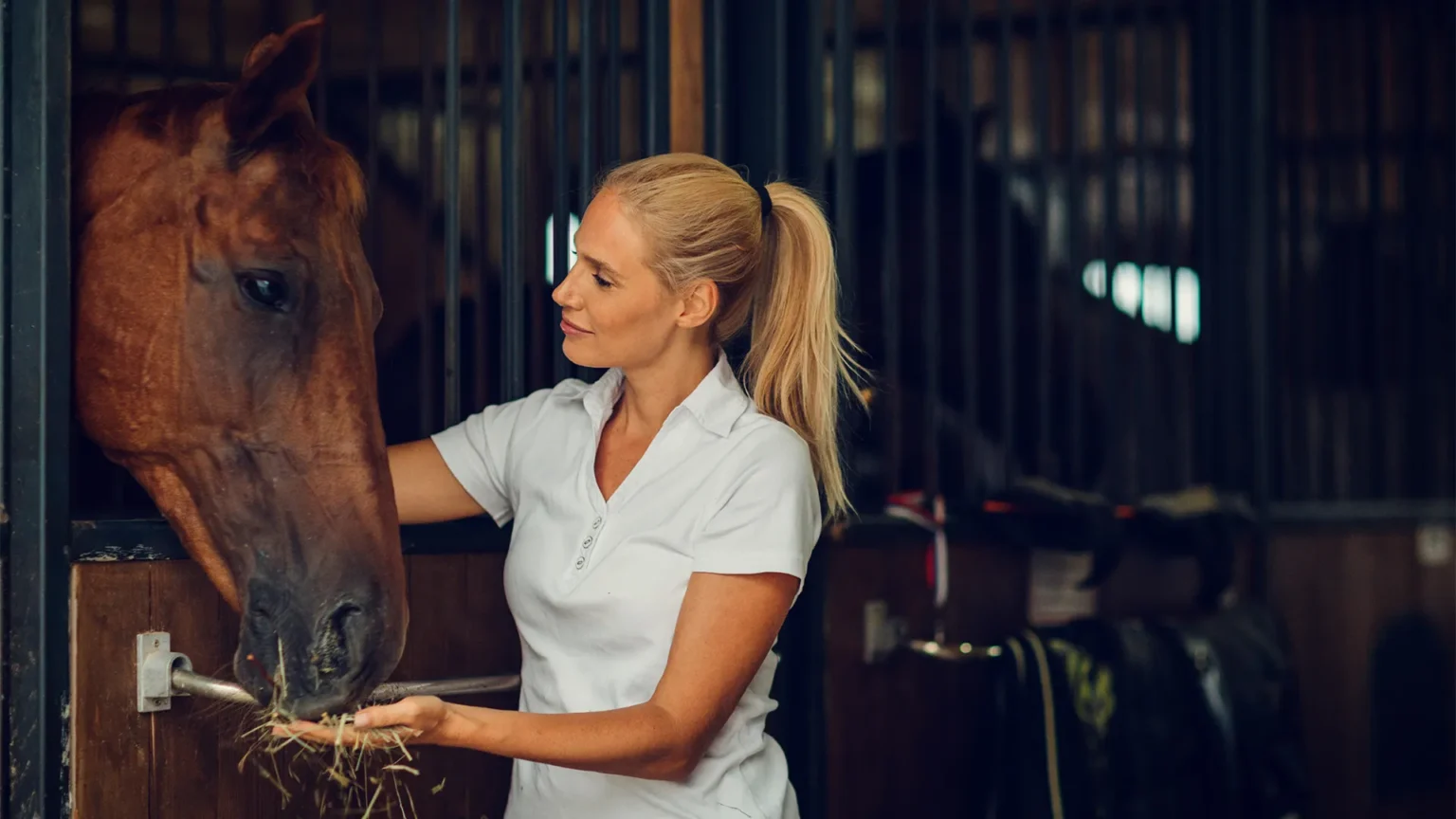
How to take care of your horse
Taking care of a horse involves various aspects of their well-being, including feeding, grooming, exercise, and general health management. Here are some essential tips for horse care:
- Provide proper nutrition Horses require a balanced diet consisting of high-quality hay or pasture grass, supplemented with grains or commercial horse feed. Ensure they have access to clean water at all times.
- Regular veterinary care: Schedule routine check-ups with a veterinarian to monitor your horse’s health, administer vaccinations, and address any potential health issues. Follow recommended deworming and dental care schedules.
- Maintain a clean environment: Keep your horse’s living area, such as the stall or paddock, clean and free from waste. Regularly remove manure, provide fresh bedding, and ensure adequate ventilation.
- Grooming: Regular grooming promotes a healthy coat and strengthens the bond between you and your horse. Brush their coat to remove dirt, debris, and loose hair. Clean their hooves daily and schedule regular farrier visits for trimming or shoeing.
- Exercise and turnout: Horses need regular exercise and turnout to maintain physical and mental well-being. Provide daily turnout in a safe and adequately sized pasture or paddock. Engage in activities such as riding, lunging, or ground training to keep them fit.
- Socialization: Horses are social animals and thrive with companionship. If possible, provide your horse with the opportunity to interact with other horses in a herd or arrange playdates with compatible equine friends.
- Regular hoof care: Ensure that your horse’s hooves are in good condition. Schedule routine visits from a qualified farrier who can trim or shoe the hooves as needed. Regular hoof maintenance helps prevent lameness and other foot-related issues.
- Parasite control: Develop a deworming program in consultation with your veterinarian to control internal parasites. Rotate deworming products to prevent resistance.
- Monitor for signs of illness or injury: Regularly check your horse for any signs of illness or injury. Pay attention to changes in appetite, behavior, weight, or lameness. Act promptly and seek veterinary attention if you notice anything abnormal.
- Maintain a consistent routine: Horses thrive on routine, so try to establish a regular schedule for feeding, turnout, grooming, and exercise. Consistency helps reduce stress and promotes a balanced and contented horse.
Remember, every horse is unique, and their care requirements may vary based on factors such as age, breed, and health conditions. It’s essential to consult with a veterinarian and experienced equestrians for personalized guidance based on your horse’s specific needs.



